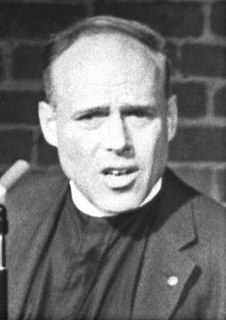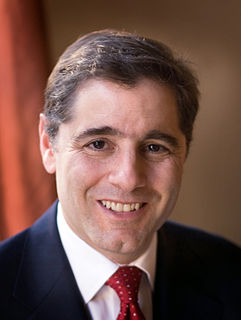A Quote by Friedrich August von Hayek
If we wish to preserve a free society, it is essential that we recognize that the desirability of a particular object is not sufficient justification for the use of coercion.
Related Quotes
Briefly, the State is that organization in society which attempts to maintain a monopoly of the use of force and violence in a given territorial area; in particular, it is the only organization in society that obtains its revenue not by voluntary contribution or payment for services rendered but by coercion.
Notwithstanding what some regard as the institutionalization of compassion, the transfer society quashes genuine virtue. Redistribution of income by means of government coercion is a form of theft. Its supporters attempt to disguise its essential character by claiming that democratic procedures give it legitimacy, but this justification is specious. Theft is theft, whether it be carried out by one thief or by a hundred million thieves acting in concert. And it is impossible to found a good society on the institutionalization of theft.
The importance of our being free to do a particular thing has nothing to do with the question of whether we or the majority are ever likely to make use of that particular possibility. To grant no more freedom than all can exercise would be to misconceive its function completely. The freedom that will be used by only one man in a million may be more important to society and more beneficial to the majority than any freedom that we all use.
Ideally, nothing should be embraced by a consumer firmly, nothing should command a commitment till death do us part, no needs should be seen as fully satisfied, no desires considered ultimate. There ought to be a proviso 'until further notice' attached to any oath of loyalty and any commitment. It is but the volatility, the in-built temporality of all engagements that truly counts; it counts more than the commitment itself, which is anyway not allowed to outlast the time necessary for consuming the object of desire (or, rather, the time sufficient for the desirability of that object to wane).
We must show that liberty is not merely one particular value but that it is the source and condition of most moral values. What a free society offers to the individual is much more than what he would be able to do if only he were free. We can therefore not fully appreciate the value of freedom until we know how a society of free men as a whole differs from one in which unfreedom prevails.
Yes, authority, coercion, and dependence rest on the mass, but never freedom or the free unfoldment of the individual, never the birth of a free society. The Socialist demagogues know that as well as I, but they maintain the myth of the virtues of the majority, because their very scheme of life means the perpetuation of power.
































